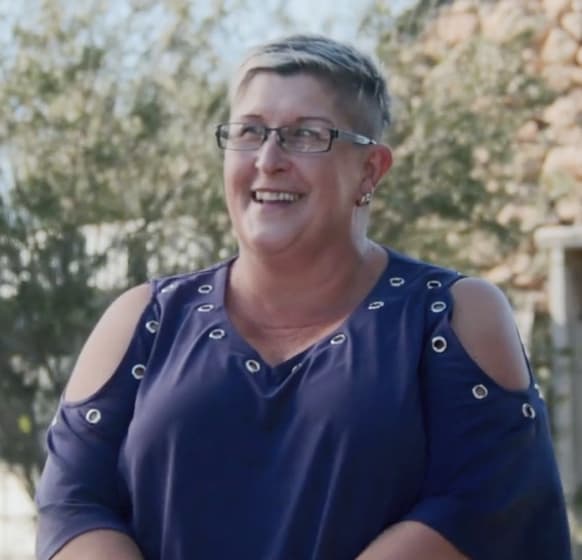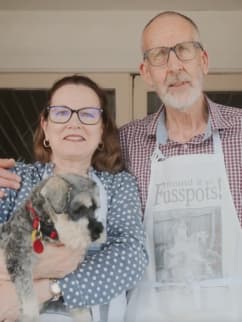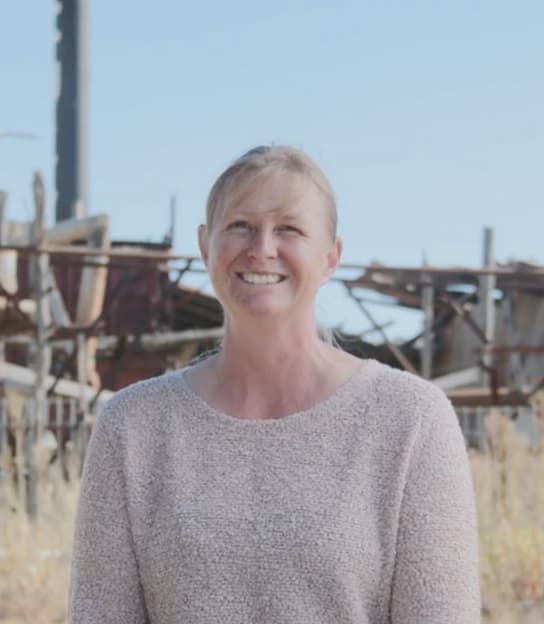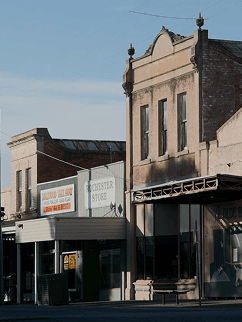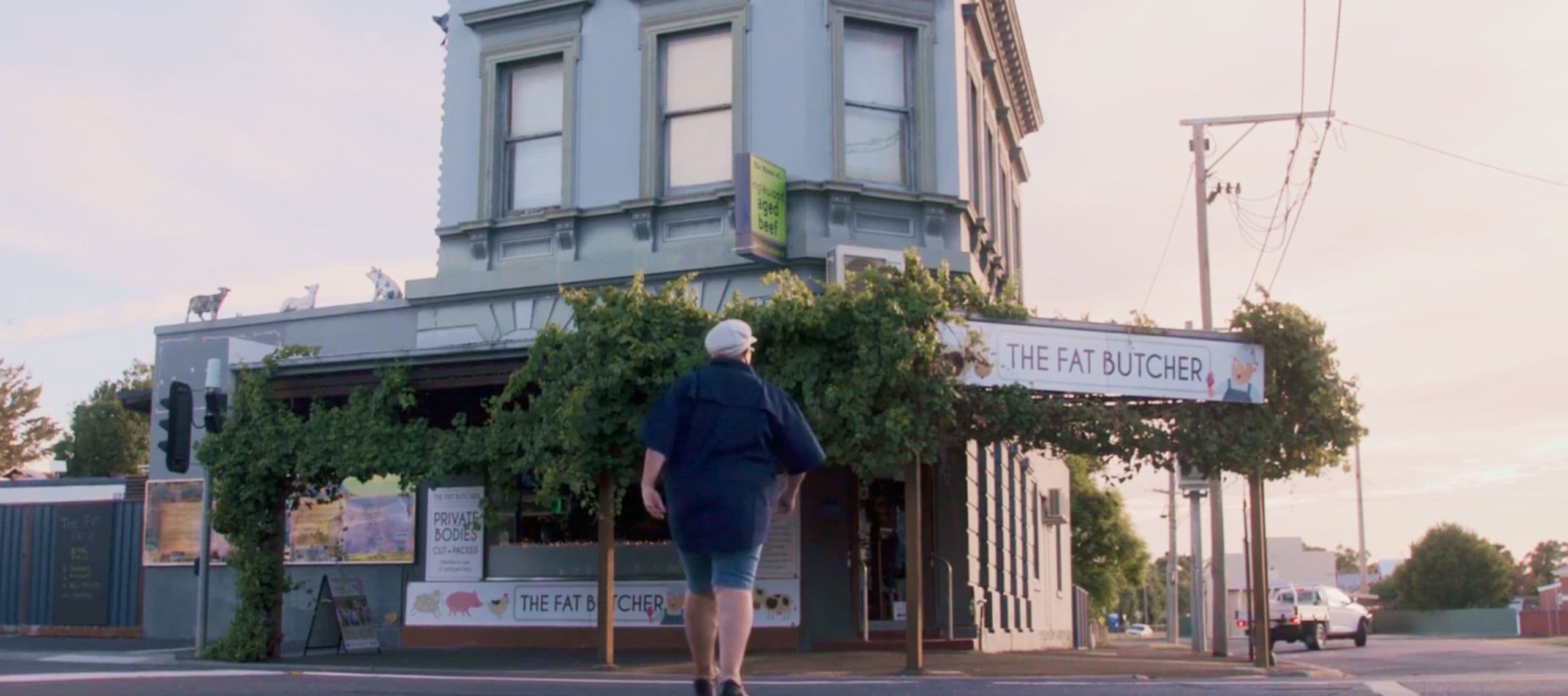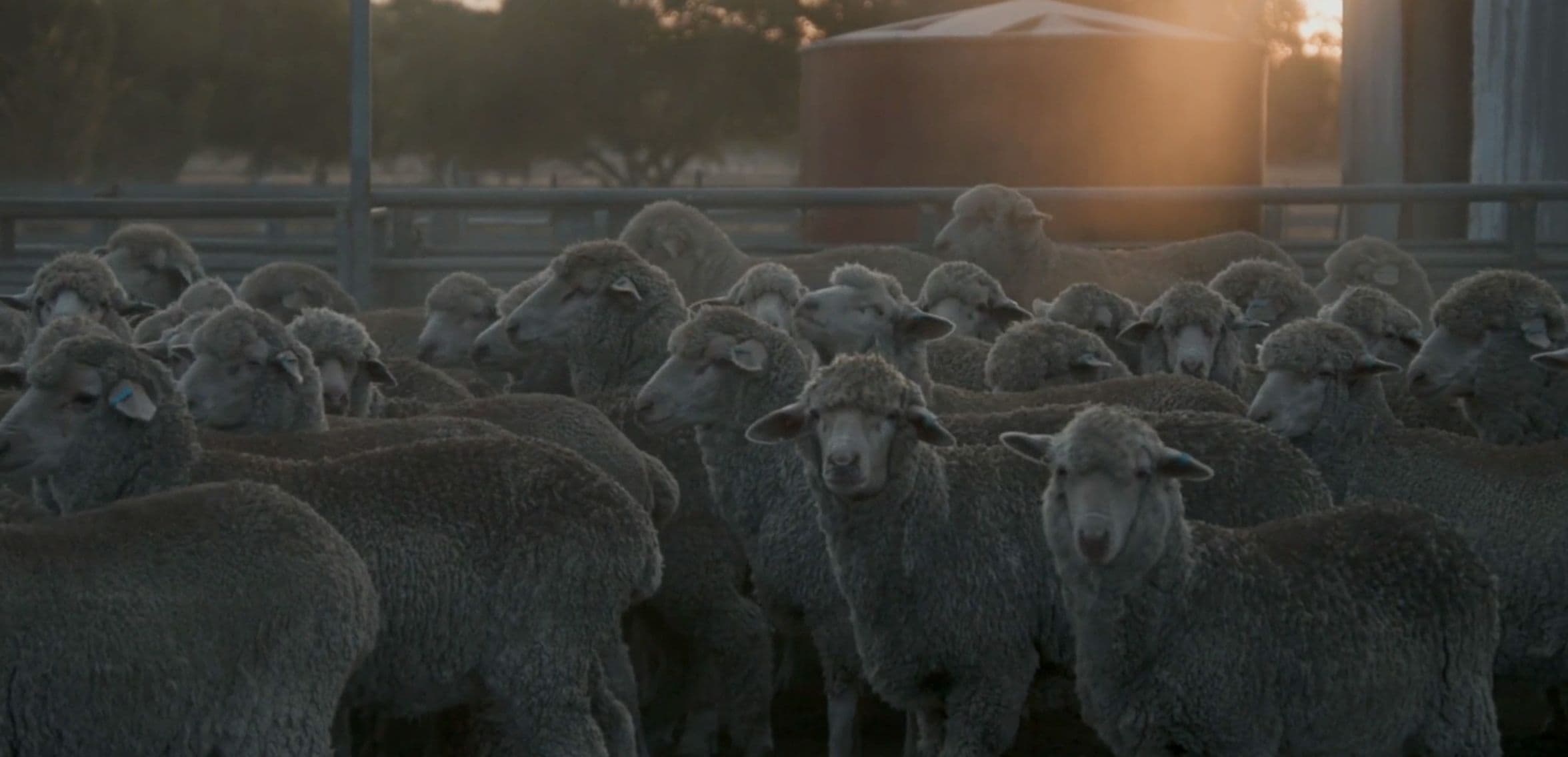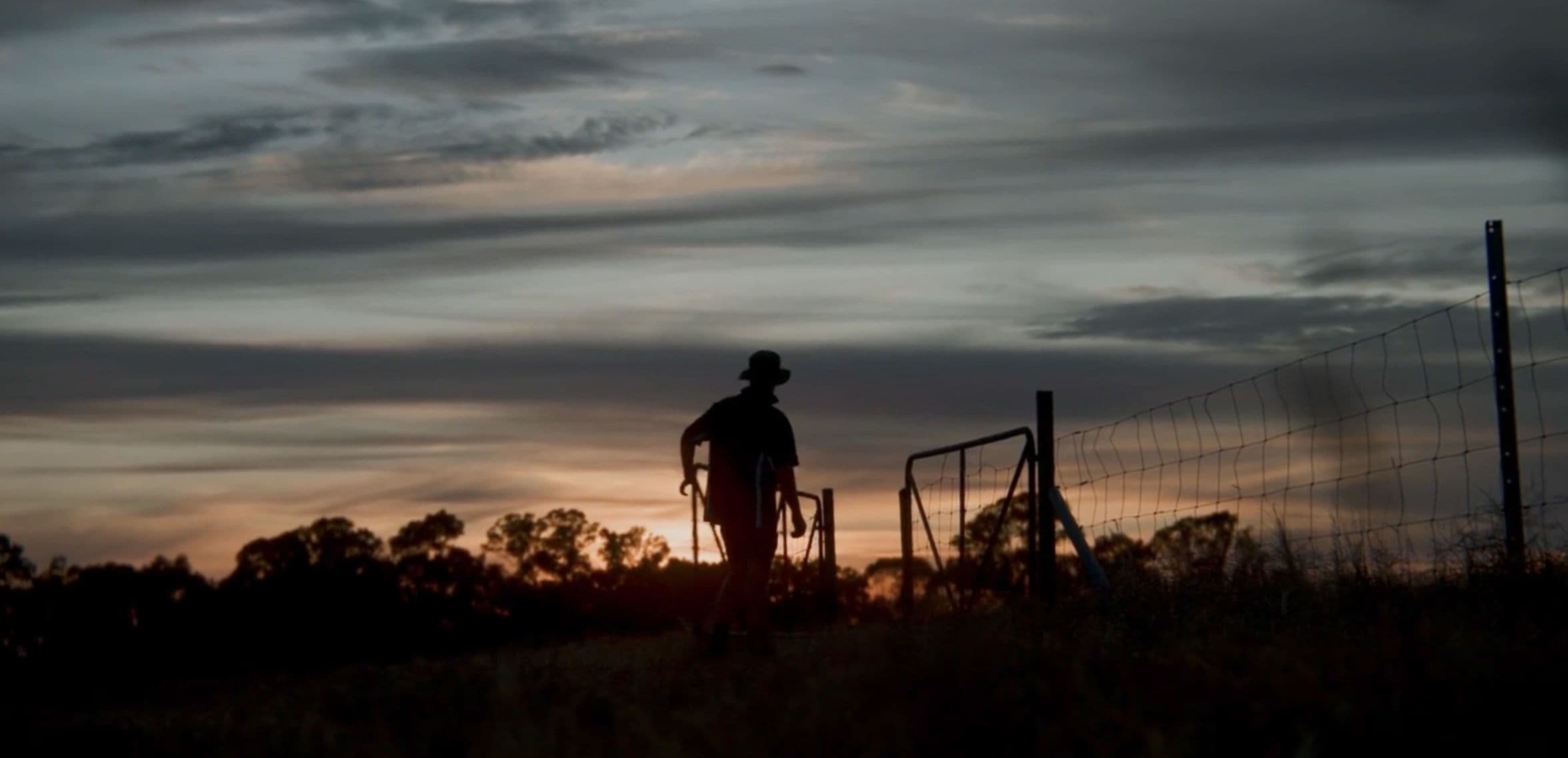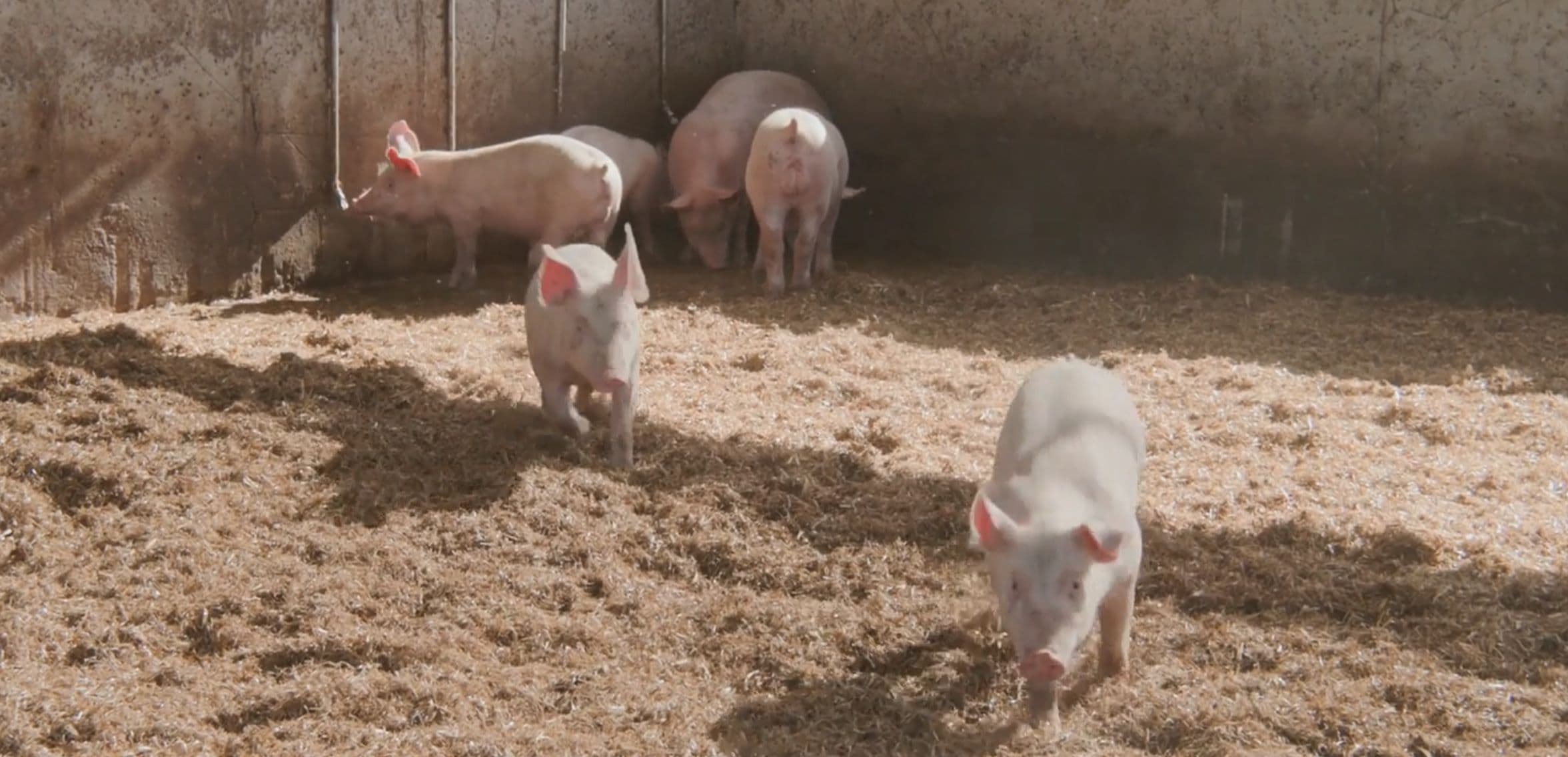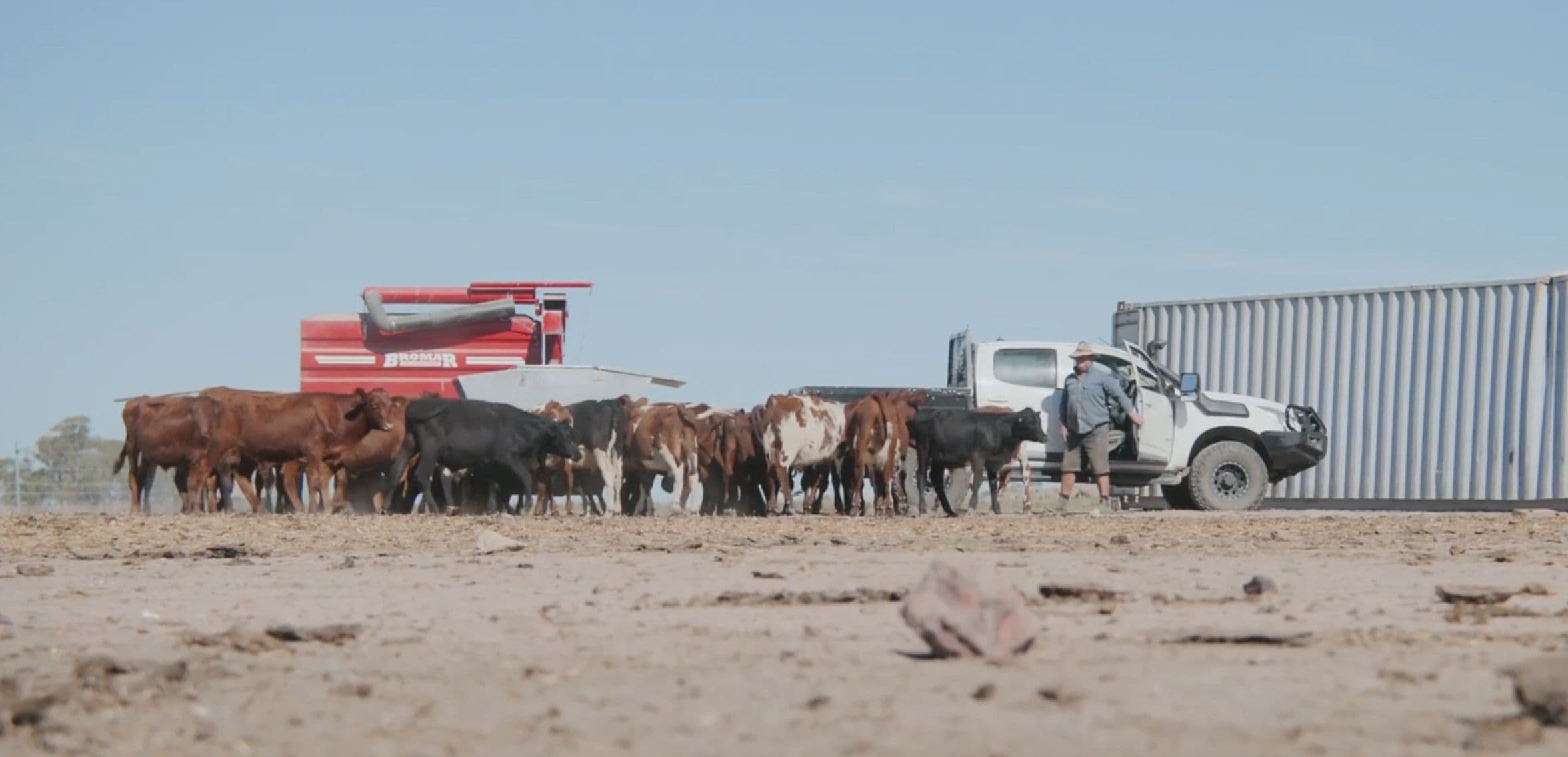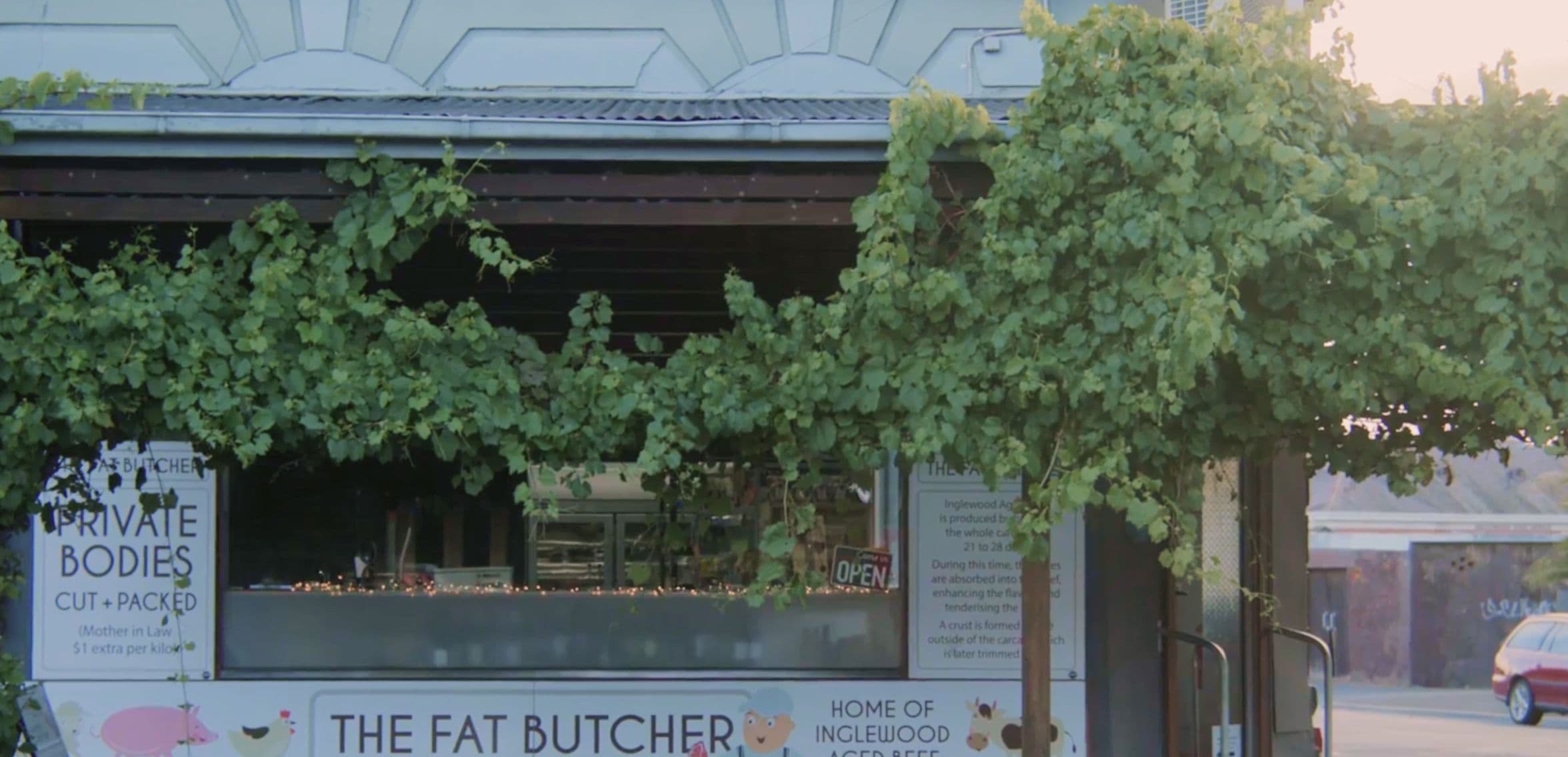Blink and you’ll miss it. For anyone travelling along the Calder Highway, just north of Bendigo, it may be hard to believe that the sleepy town of Inglewood was once one of the most populous centres in the state.
A major hub during the mid-19th century gold rush, today its ornate Victorian architecture is the only visible vestige of the town’s booming past. However, there’s more than meets the eye in Inglewood. Hard work and self-reliance were central to the character of any successful prospector on the goldfields, and 150 years on, these virtues continue to shape the identities of the locals today. Despite a drop in foot traffic, failing telecommunications infrastructure, and increasingly adverse weather events – the local traders are as tenacious as they’ve ever been.
Inglewood & Loddon Shire at a Glance
Types of Businesses Operating in the Loddon Shire
Other businesses
Gold Fever
The gold rush of the 1850s and 1860s was one of the foremost events in Australia’s recent history, laying the economic foundations for many of the towns and cities we know today – Inglewood among them. Following the discovery of gold in Bathurst, New South Wales, in 1851, thousands of migrants flocked to Australia from Europe, America, and Asia hoping to find fortune. When gold was later discovered in Clunes, then Castlemaine, Ballarat, and Bendigo, gold fever well and truly took hold. Victoria’s population increased 7-fold, from 77,000 to 540,000 over the decade that followed.
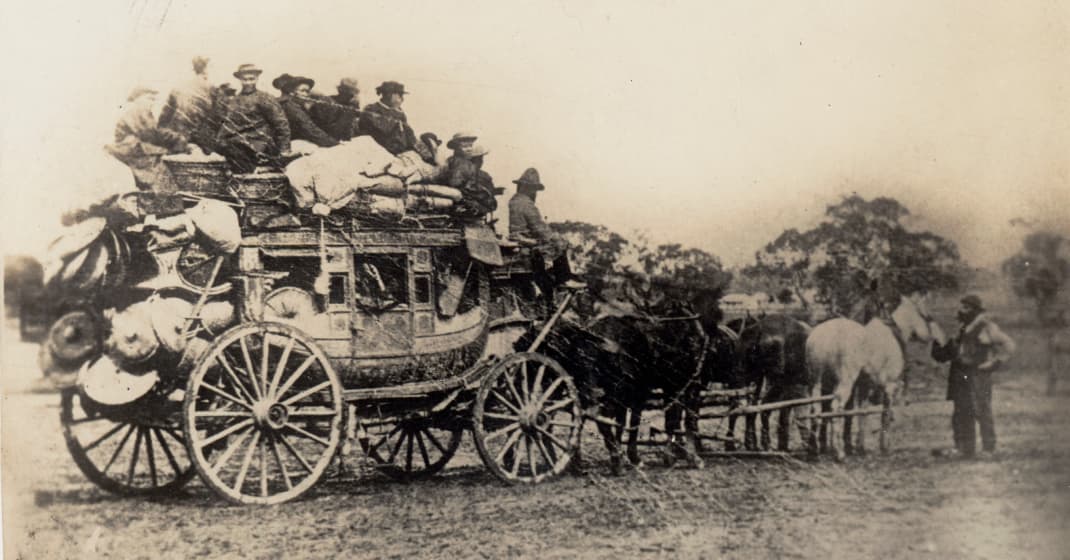
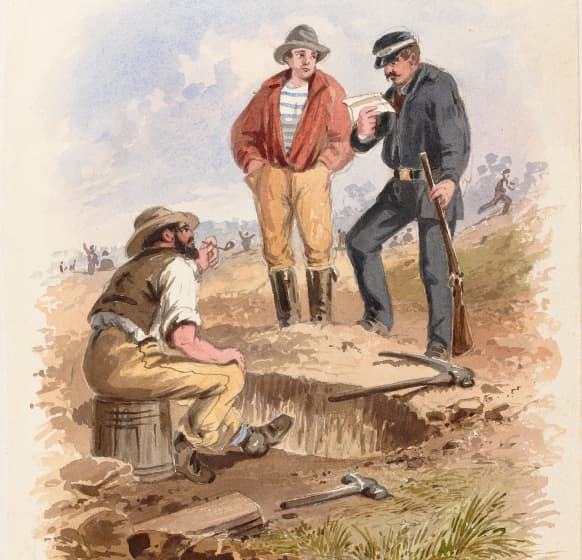
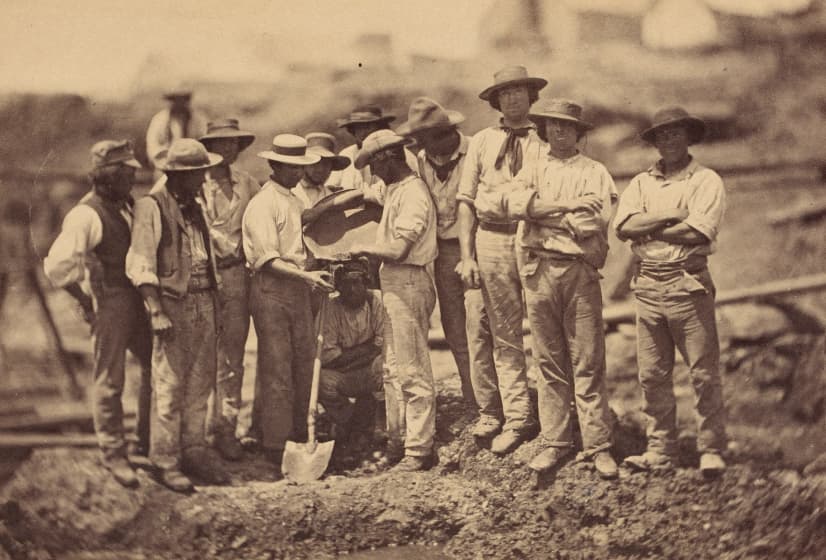
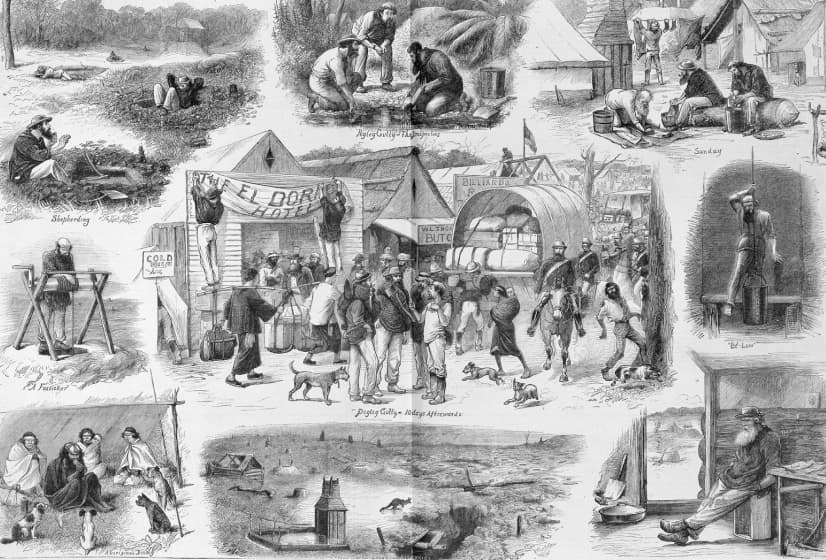
Victorian gold rush. Source: State Library of Victoria.

Dja Dja Warrung
The discovery of gold in Inglewood – and across Australia – did not, however, bring prosperity to all. For thousands of years, the land that lies between the Loddon and Avoca Rivers was occupied by the First Peoples of the land, the Dja Dja Warrung. Just as the spoils of diggings elsewhere throughout the state began to dwindle, gold was discovered in Inglewood in 1859, and the rush to find it was immense. By 1860, 40,000 people were on the field – and many of the Dja Dja Warrung people were forced off their traditional lands.
Scenery on the Kooyooroo Ranges. Source: State Library of Victoria.
A City in The Scrub
Arriving in droves with picks, pans, and canvas tents, the diggers quickly erected a settlement around what would become the town of Inglewood. By 1861, the town boasted at least twenty-two (licensed) hotels, a theatre, four banks, ten grocery stores, four drapers, a newspaper, a municipal council, a courthouse, gaol, post office, and police buildings. The swift development of Inglewood earned it the nickname, the ‘City in the Scrub’. As the settlement grew, farming land was cleared to feed the diggers and their families, and the agricultural industry quickly advanced.
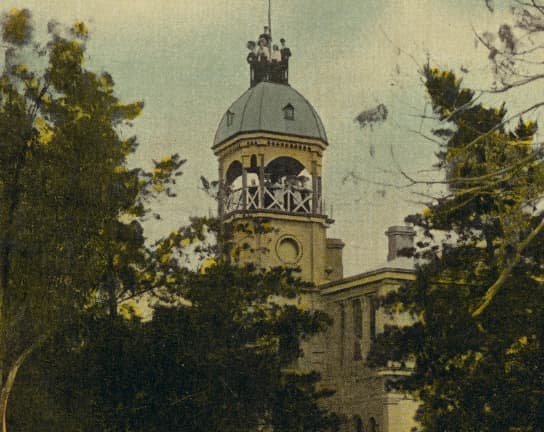
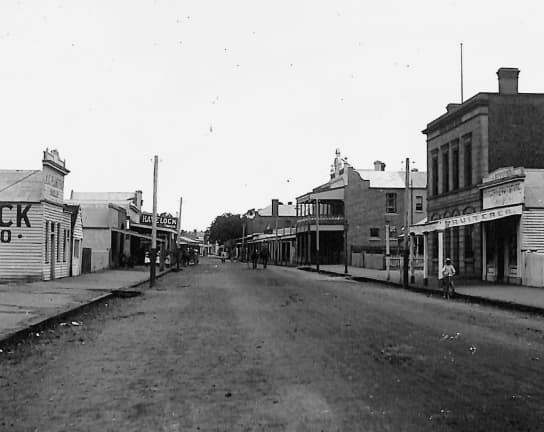
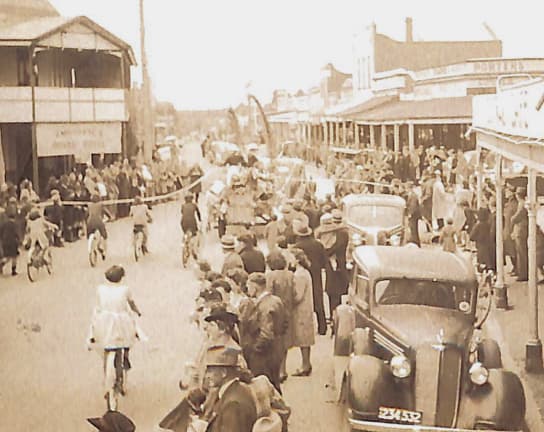
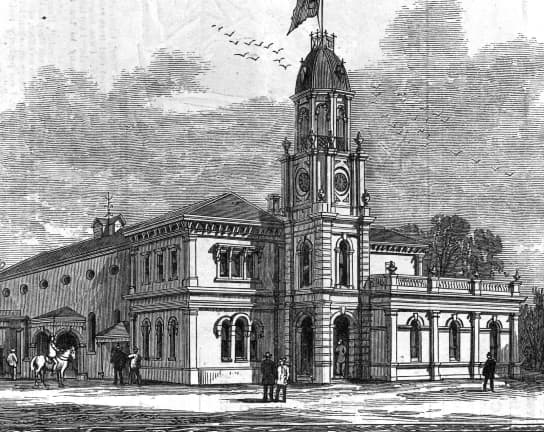
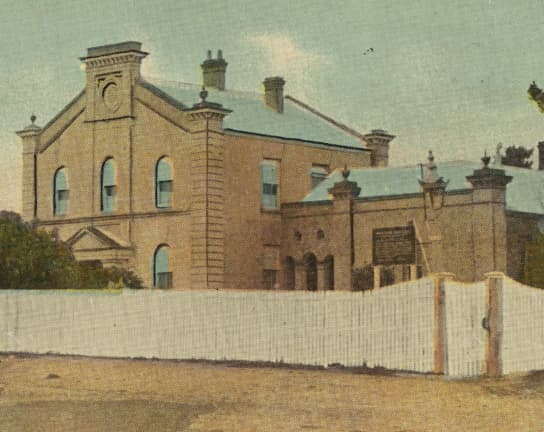
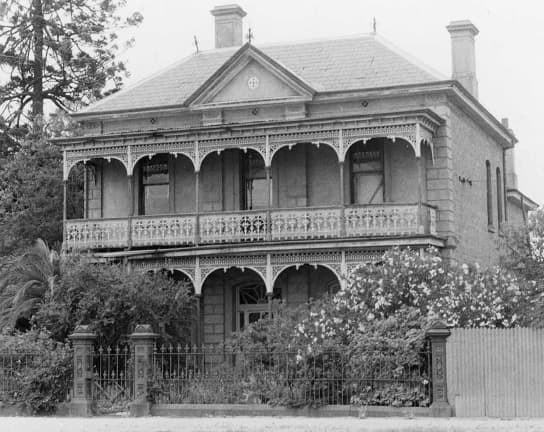
Source: Wendy Murphy & State Library of Victoria.
Boom, Bust & Beyond
Loddon Shire Councillor, Wendy Murphy, is a sixth-generation Inglewood local. Over the course of 160 years, her family has witnessed the evolution of Inglewood for better and worse. “My five times great-grandfather was a mining engineer who came to Inglewood during the gold rush,” she explains. “He had a crushing machine that was used in the deep quartz mining that started after the alluvial gold deposits were exhausted.” Despite the magnificent returns in the early 1860s, the period of deep quartz mining had all but ended by 1867. As the turn of the century neared, Inglewood’s population dwindled to nearly a tenth of its initial size, and those that remained – including Wendy’s family – knew that a new economic activity was needed to revitalise the town’s prospects.
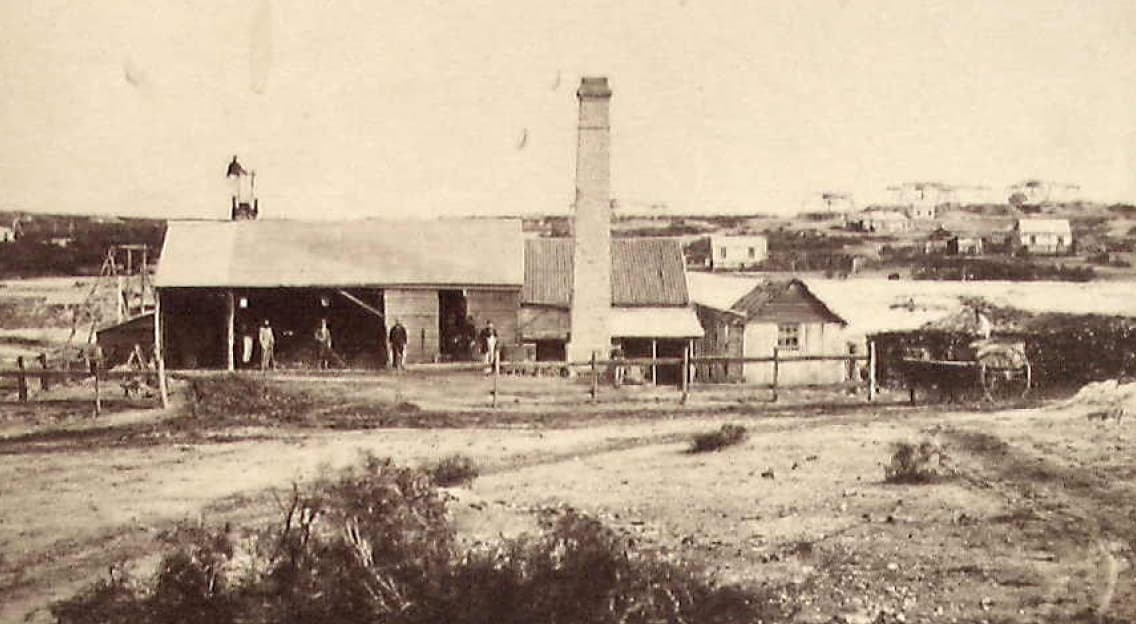
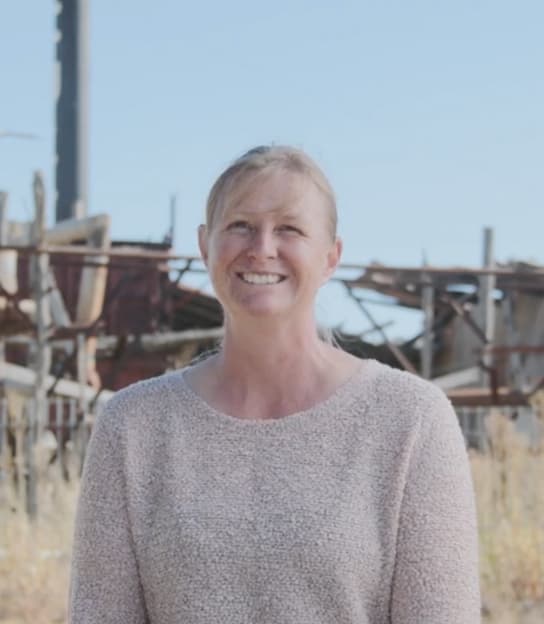
Source: Wendy Murphy & State Library of Victoria.
Liquid Gold
“Inglewood is surrounded by the Blue Mallee scrub, the Eucalyptus polybractea… It produces the most pure Eucalyptus oil and is really well valued,” explains Wendy, “so, people knew it was a very important commodity, they saw it as an opportunity.” In 1895, a pioneering Anne McKean took out a licence to distil eucalyptus oil just southwest of Inglewood, setting the trend for dozens of other small distilleries, and providing employment for cutters around the area. By the end of the 19th century, Inglewood’s predominant industry had shifted entirely from gold to eucalyptus oil, with the establishment of a number of major distilleries, several of which are still operating to this day.
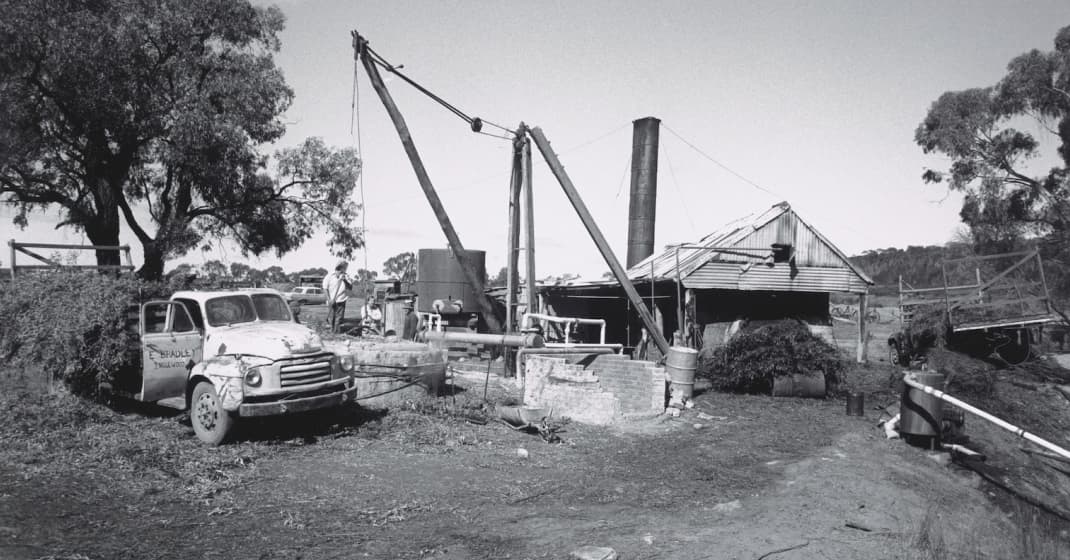

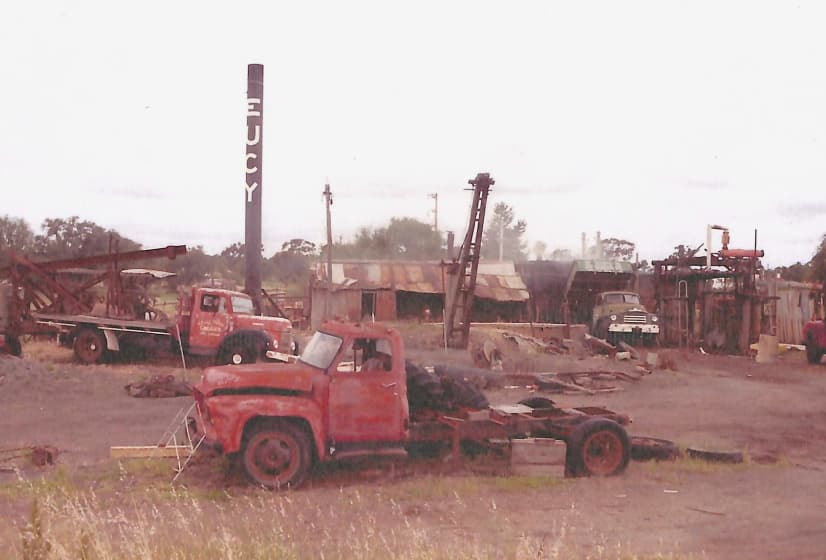
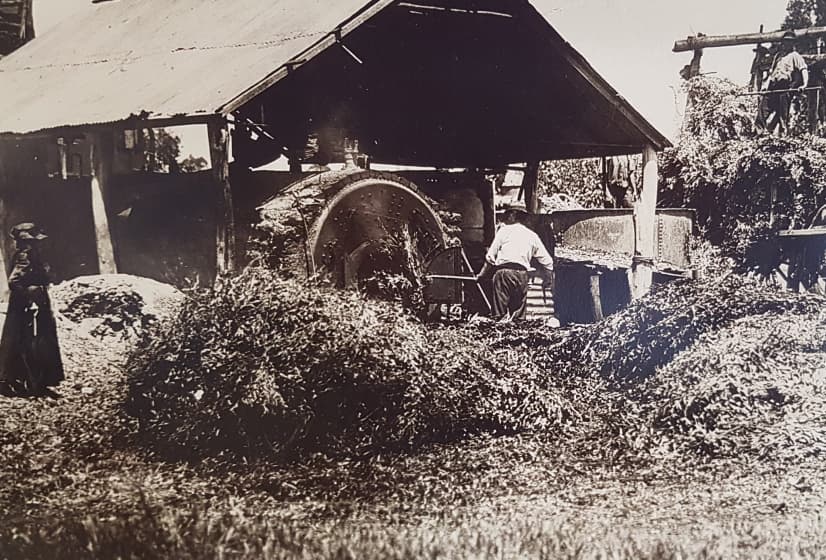
Eucalyptus Distilleries in Inglewood; Top left – Source: State Library of Victoria; Bottom row – Source: Wendy Murphy.
The eucalyptus oil industry became a very important industry after the downturn of the gold rush… I can remember as a kid, stepping out of the house and smelling the eucalyptus wafting over the town. It was just fantastic.
Wendy Murphy – Loddon Shire Councillor for the Inglewood Ward
Preserving The Essence Of Inglewood
Nowadays, the scent of eucalyptus doesn’t hang in the air like it used to. Many of the smaller distilleries have either closed down, or been absorbed by bigger companies. But for Nicole Upton, who runs the Eucalyptus Distillery Museum on the outskirts of town, it’s a legacy that’s worth preserving and celebrating. “It's important to keep that history alive because it's still operating now and still provides jobs for locals,” she says. Located on the site of the heritage listed Old Jones Distillery, the museum offers guided tours and eucalyptus oil production demonstrations. However, a decline in visitor numbers, exacerbated by COVID, is threatening the museum’s viability: “It is very challenging… We've had to adapt and definitely run more tours with less numbers… and work harder,” she says.
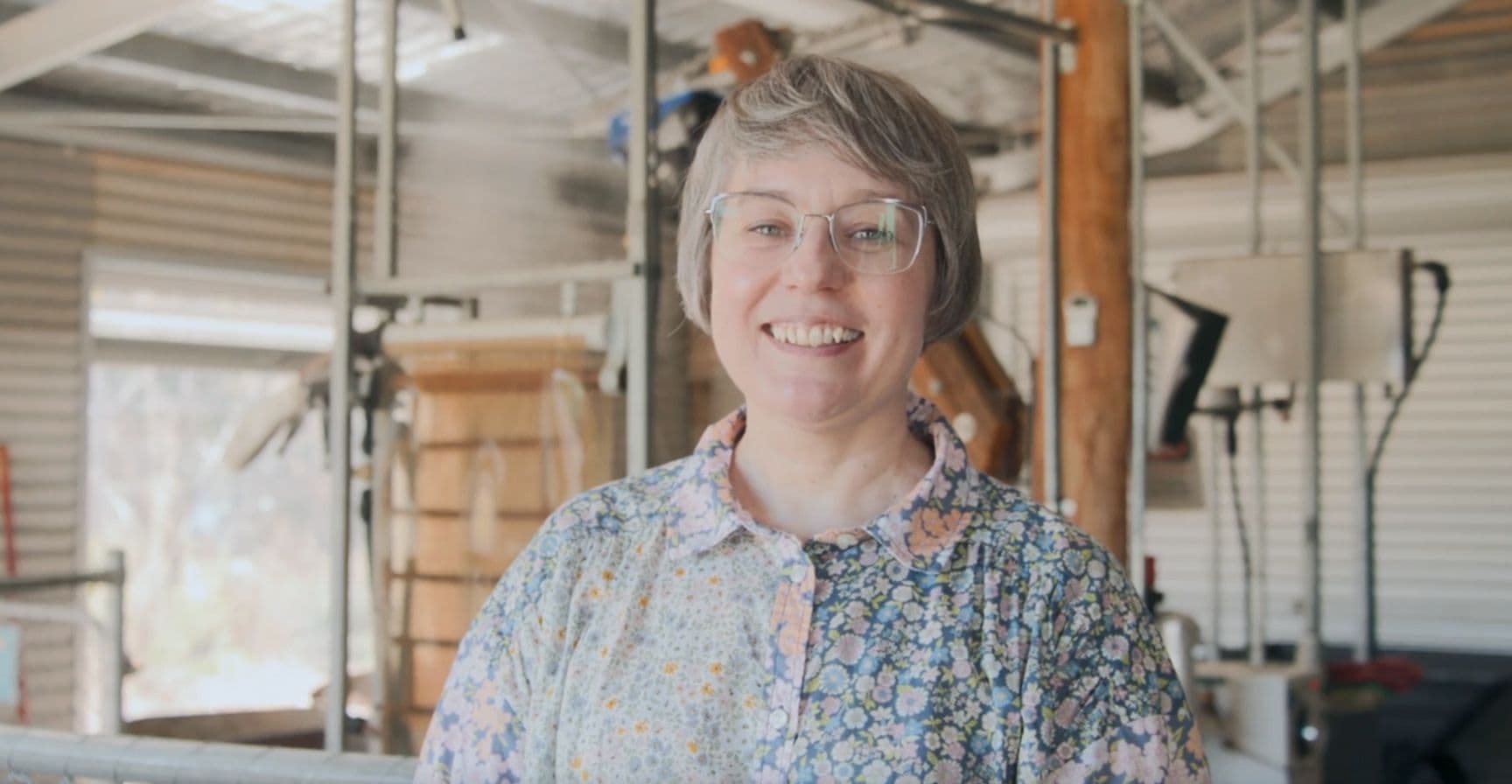
Nicole Upton at the Eucalyptus Distillery Museum.
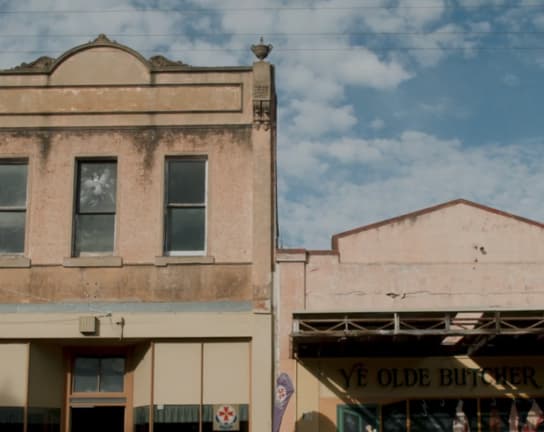
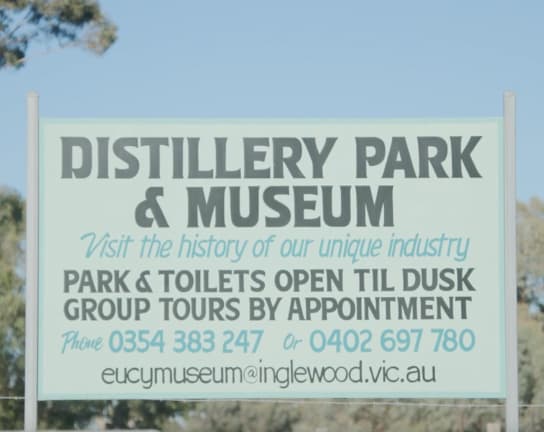
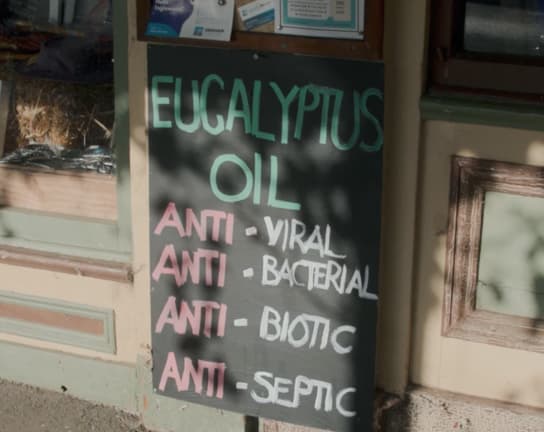
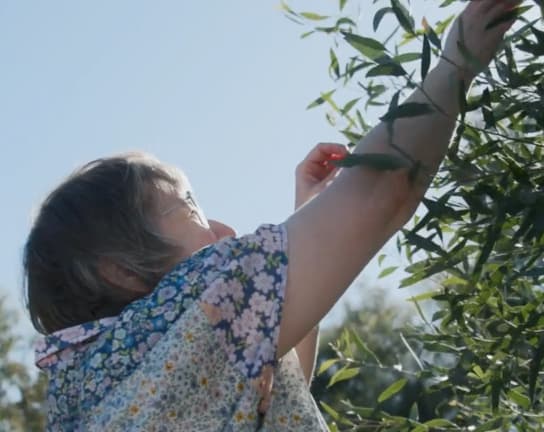
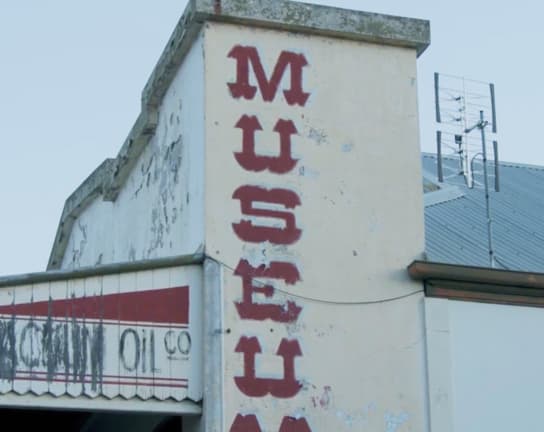
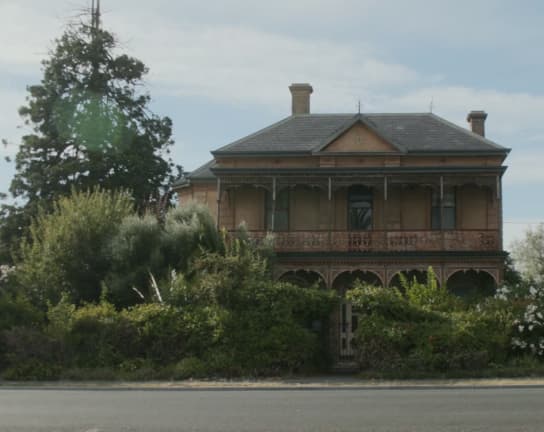
Visitors & Economic Vitality
It’s a sentiment shared further along Brooke Street, where Catherine and Barry run one of five antiques and collectibles stores in town: Fusspots at Inglewood. “Our businesses aren't sustainable unless we have visitors.” Catherine says, “Our locals are great… but our population across the shire is less than 8,000 people, and it’s a very big shire.” In an effort to turn Inglewood into a destination for antiques collectors, the couple, who opened Fusspots in 2006, encouraged their friends to move their antiques business into the town. After that, two more stores opened, making five in total. “It’s not a sport,” says Catherine, “If people can collaborate and find ways to work with each other, it really strengthens what you can do.”
If people can collaborate and find ways to work with each other, it really strengthens what you can do.
Catherine Norman, Fusspots at Inglewood
Indeed, this community mindedness has had a tangible impact on Inglewood’s visitor numbers: “The antiques and collectibles businesses, for the last 15 to 20 years, have really brought people into the town,” says Cr. Wendy, “It’s what Inglewood has focused its tourism direction on.” However, since COVID, numbers have been dwindling, and over recent years, the wider area has been hit with flooding and bushfires, which has further deterred the visitors coming to the town: “It was very quiet over what is normally a good trading period,” says Barry, “and those sorts of events have a cumulative effect.”
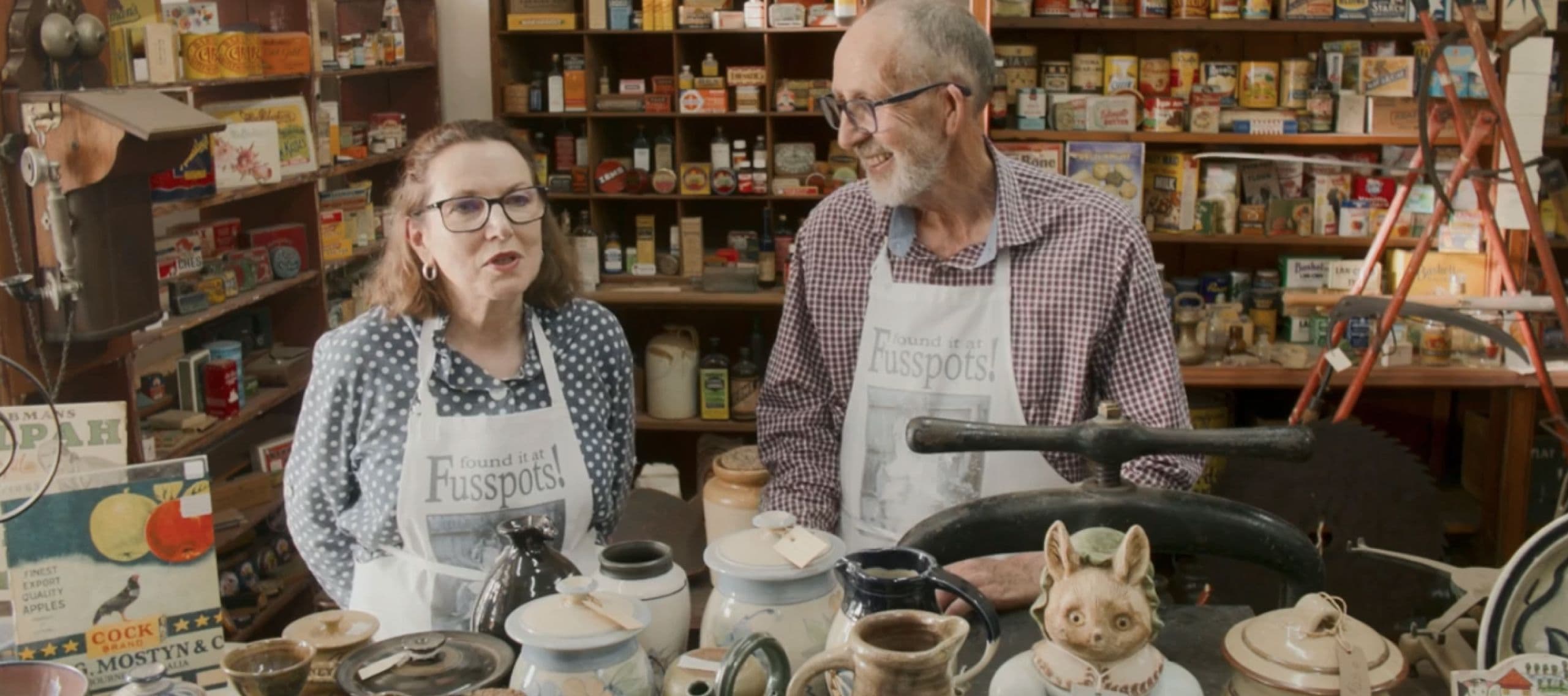
Catherine & Barry Norman at Fusspots.
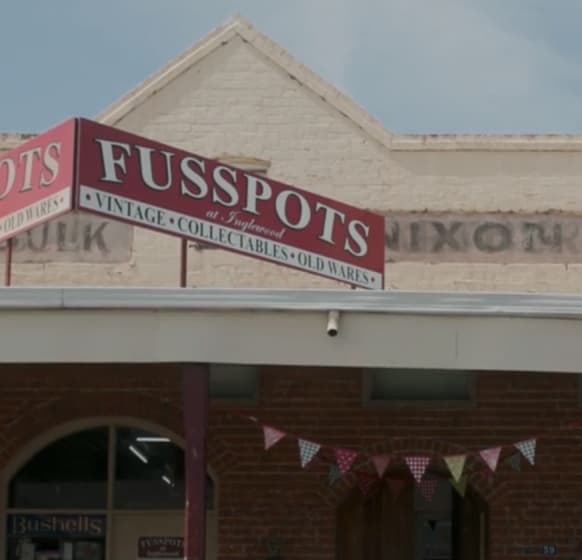
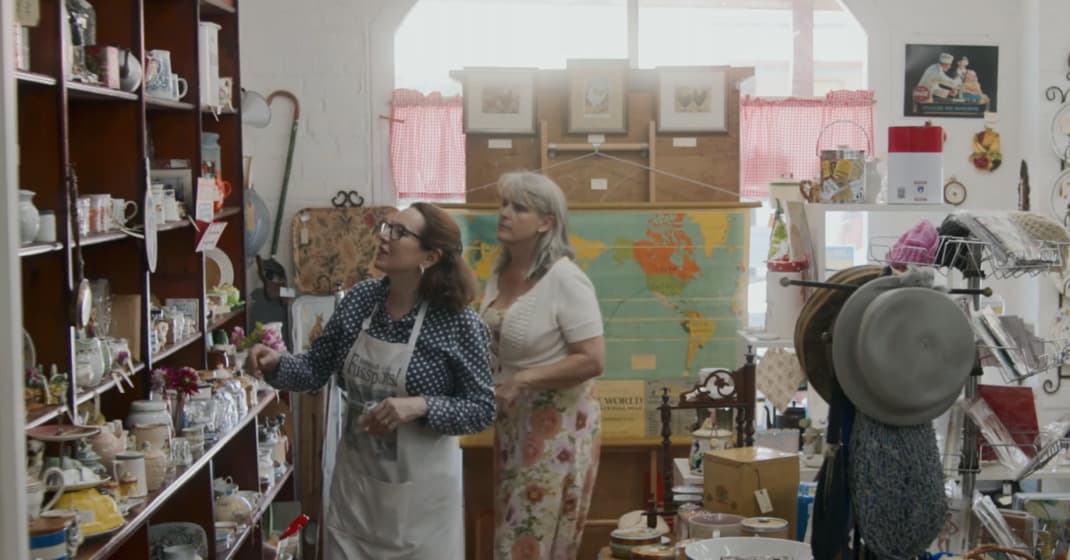

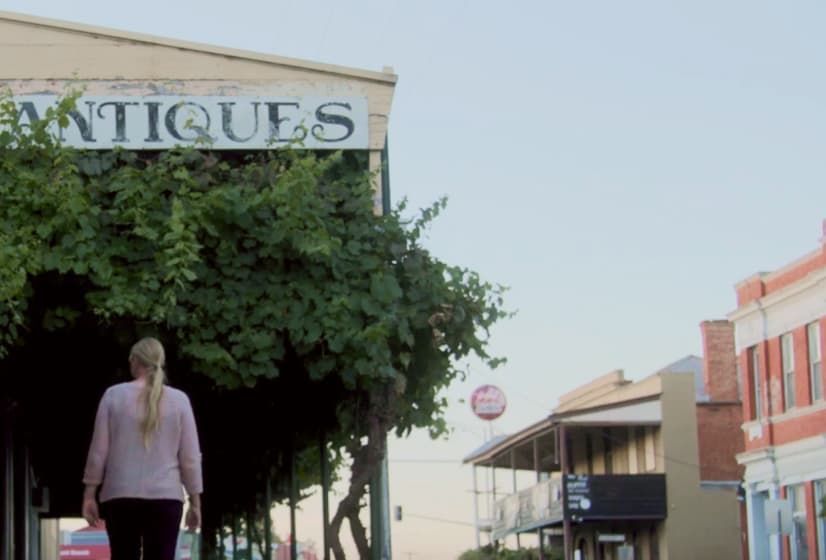
The Ecommerce Lifeline
To help drive more revenue, both Nicole and Catherine have turned to eCommerce. “We don't always get repeat business… so I created my online store,” explains Nicole, who sells her own range of homemade eucalyptus-oil based candles, reed diffusers, bath salts, and soaps. “People might only come here once, but they generally will buy again online,” she says. Similarly for Catherine, selling her items online has allowed her to reach a much wider market, “We actually gained customers from overseas,” she says.
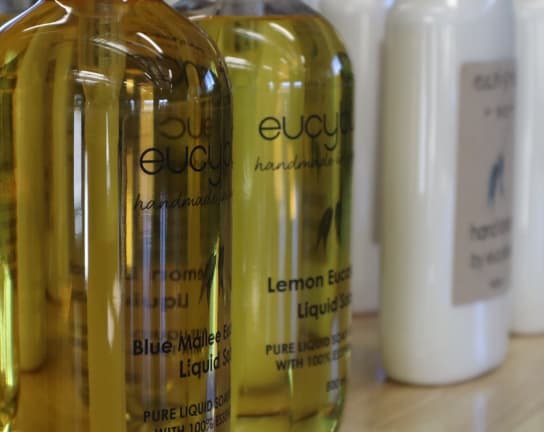

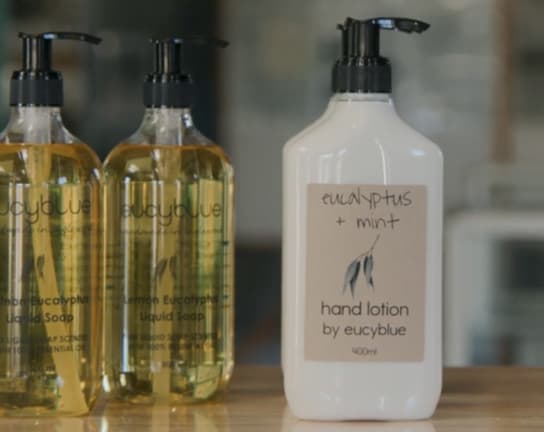

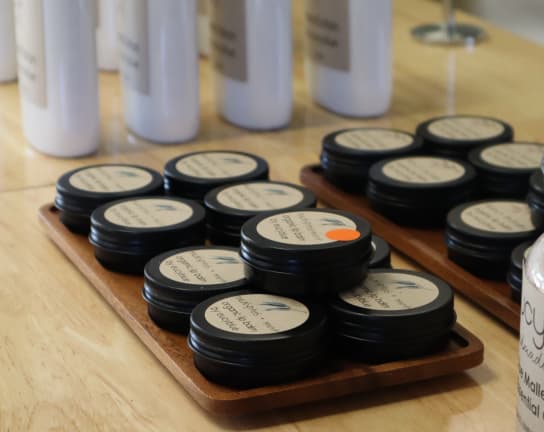
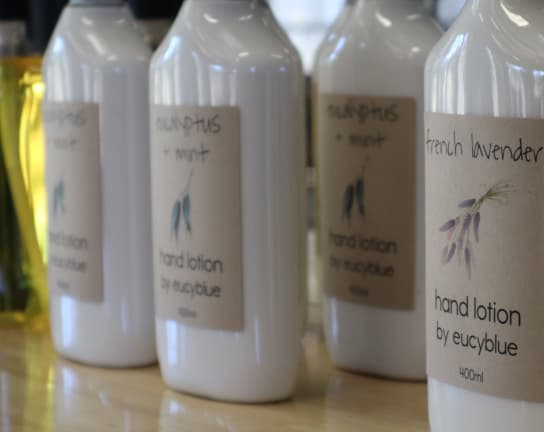
These shifting business models reflect a broader trend that is playing out nationally. A recent report by Australia Post confirmed that, despite there being a decrease in eCommerce orders nationally, online shopping in regional areas was on the rise, with the number of online purchases in remote and outer rural areas increasing year on year by 5.7% and 6.4%, respectively. However, it’s a double-edged sword. While it may ensure the survival of some individual businesses, the same can’t be said for the vitality of towns.
I would prefer to have a busy, thriving business in the bricks and mortar store because they are what keep the towns alive. They keep the towns humming.
Catherine Norman, Fusspots at Inglewood
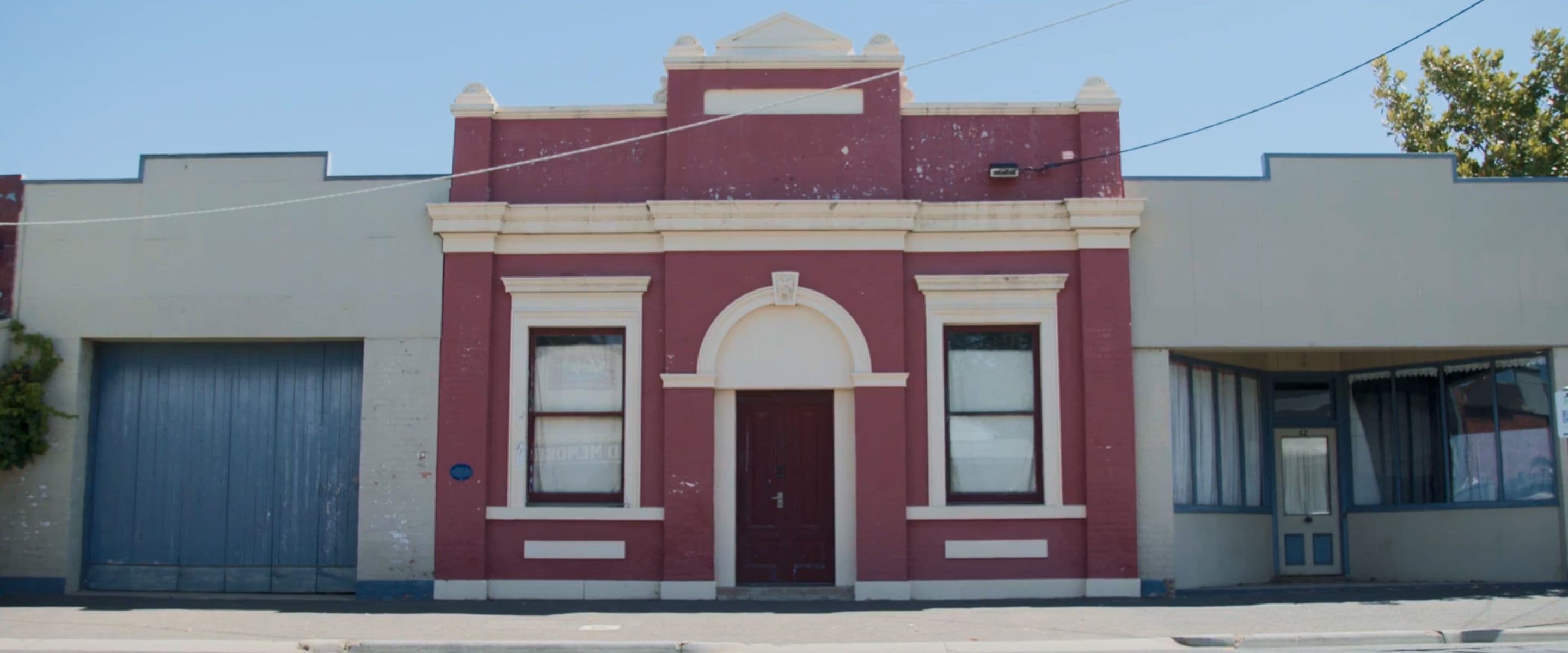
Disconnected But Not Discouraged
Developing an online store is easier said than done when you live in an area that suffers from regular power outages and deteriorating telecommunications infrastructure. “Last week, the power and WiFi was out on Tuesday and Wednesday… So, there was no online store work to be done for two days,” says Catherine. For Deb Hancock, owner of The Fat Butcher, she had to run her shop without internet for nearly two years after Telstra switched from ADSL to NBN. “They said we simply cannot put internet into this shop,” says Deb. Working out of a heritage-listed building – of which most are in Inglewood – Deb was told that heritage laws restricted the placement of the satellite dish required for the NBN to work correctly. As a result, she was forced to do all her administration work from home, preventing her from managing the shop front.
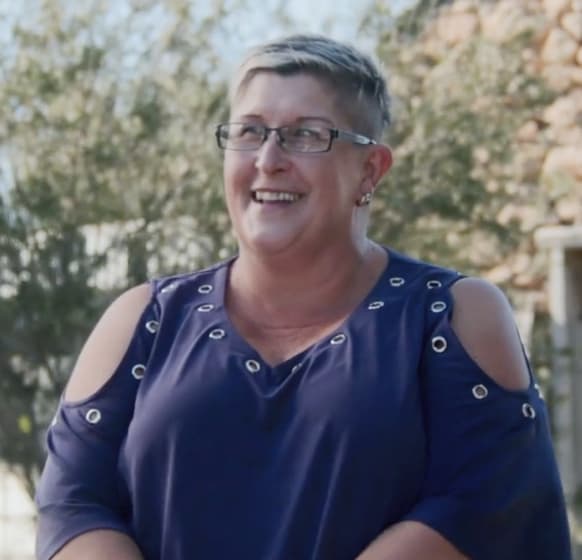
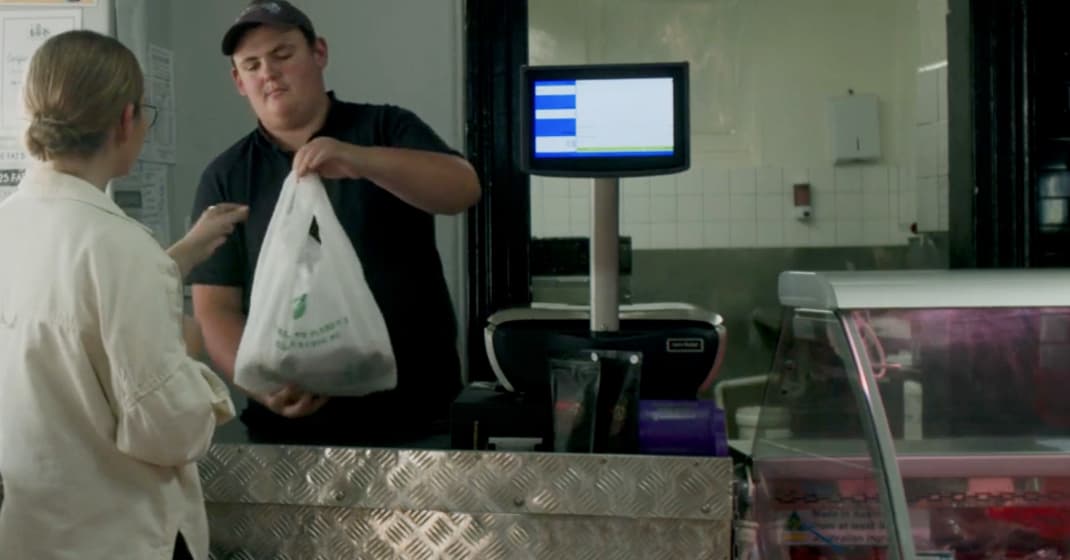
Deb Hancock, The Fat Butcher
Despite an announcement in January that NBNCo would be extending the reach of its wireless broadband network in Inglewood and the neighbouring town of Serpentine, the business owners in Inglewood aren’t holding their breath. Instead, they are turning to the latest technologies to ensure they can keep operating around strict heritage laws, regular storm events, and the planned outages which will come as a consequence of the NBN upgrade. Deb has adopted Starlink’s broadband service in conjunction with Zeller – one of the few Australian EFTPOS providers compatible with the SpaceX-backed satellite network. Meanwhile for Catherine, Zeller’s Tap to Pay solution is offering her a backup payment optionfor when the WiFi drops out.
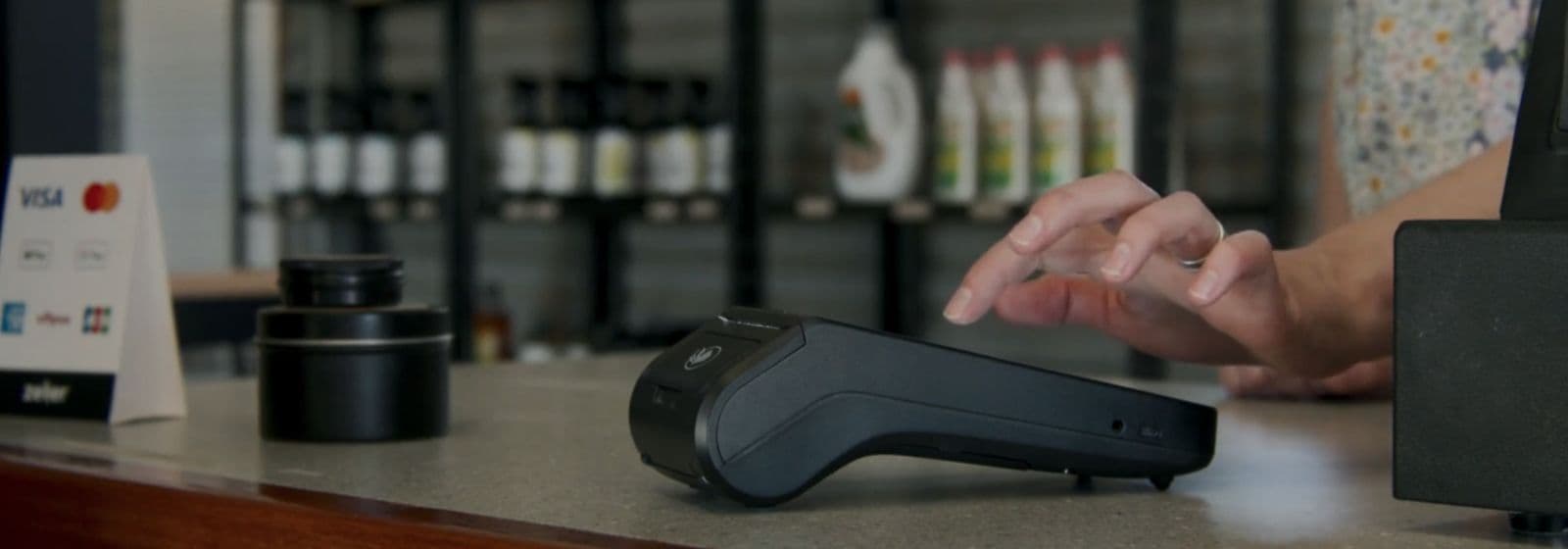
Embracing Change
“You have to be able to change and adapt your business… it's the only way to survive,” says Deb. When her and her husband Daryl’s pork farming business was threatened by drought, she was quick to find alternative ways of driving revenue: “We bought a refrigeration truck and just started travelling Victoria, knocking on local butcher shop doors,” Deb explains, “That's how we saved our farm… by marketing our own pigs.” When the butcher shop in Inglewood came up for sale, Deb saw this as another opportunity to diversify the business and maintain a steadier income, selling their own produce – pork, as well as lamb and beef – in a ‘paddock to plate’ model. “The shop just helps the farm flow by having that consistent income every week,” she explains.”
Catherine and Barry also know the survival of their business hinges on their ability to adapt. “You have to have a plan B, a plan C, a plan D,” says Catherine. Last year they took out a stall at another vintage emporium in Elmore to reach a different market, and recently they have decided to only open their Inglewood store on a pop-up basis in order to afford Catherine more time to develop the online business. “It's just another plan to try and help our business be sustainable,” she says.
You have to be able to change and adapt your business… it's the only way to survive.
Deb Hancock, The Fat Butcher, Inglewood
The Future Of Inglewood
The story of Inglewood starts like many other regional Australian towns. How it ends is in the hands of its traders and those who support them. Nicole, Catherine, Barry, and Deb may just be a few individuals but their resilience, community-mindedness, and work ethic provide a beacon of hope for the future of small towns across the country. By working together, embracing new technology, and adapting their business models, small-town merchants will continue to find new ways to help their towns survive. It’s now up to customers to help them thrive.
